Urbanize!
Urbanize! Festival 2016 “Housing the Many - city of many” is organized already for the seventh time by derive - Journal of Urban Research in Vienna. derive is publishing the journal already for 16 years and also started derive - Radio for Urban Research in 2011 which broadcasts monthly on every first Tuesday at Radio Orange FM 94.0.
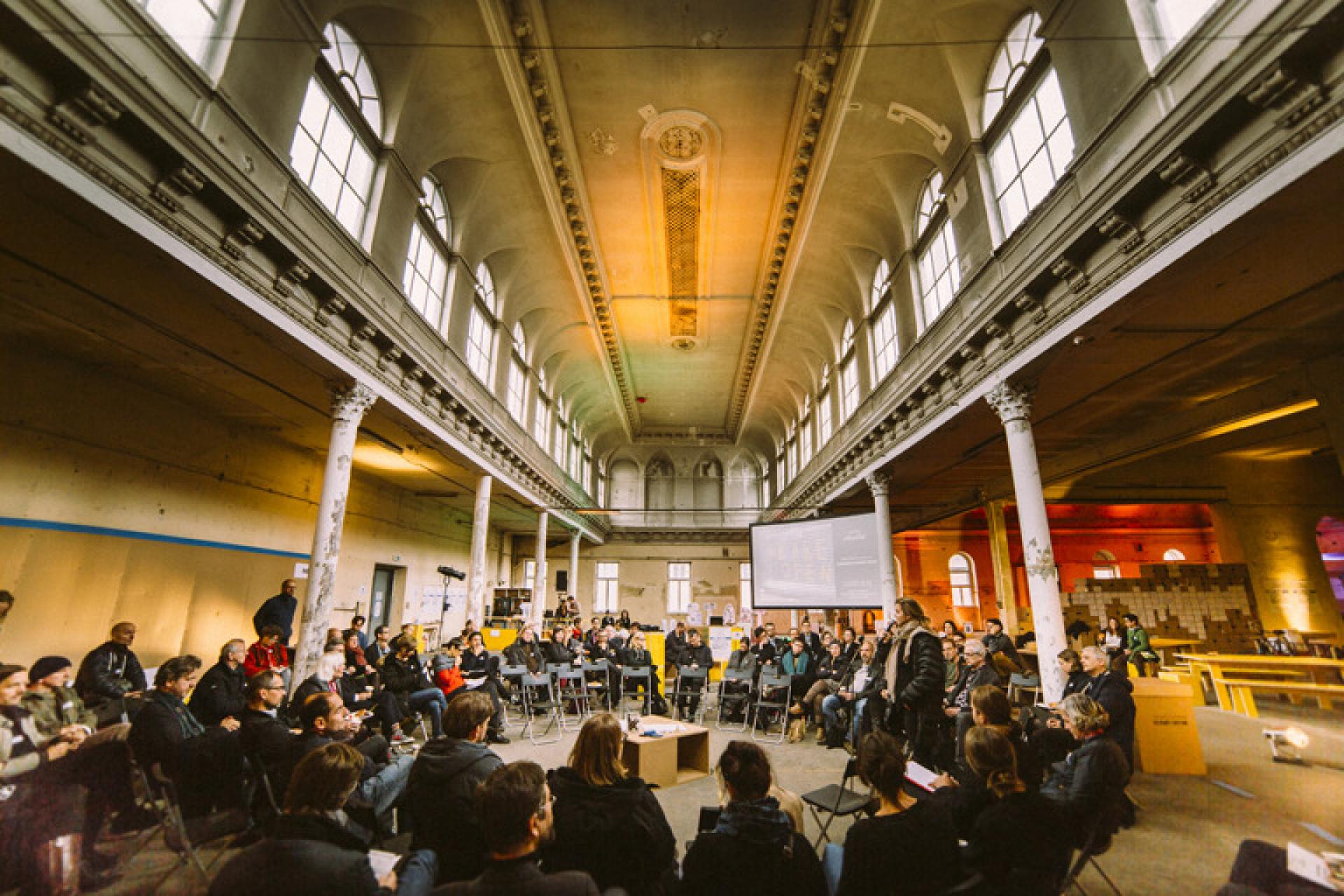
Opening of the conference in Festivalzentrale, Vienna | Photo © Lennart Horst
This years edition of the urbanize! festival is highlighting the scalability of the diverse experiences of urban self-organization projects and initiatives and their potential for urban development by, with and for residents. The seventh edition of the festival was organized the first time in Hamburg from 23rd September to 2nd October 2016 and Vienna from 12th to 16th October 2016.
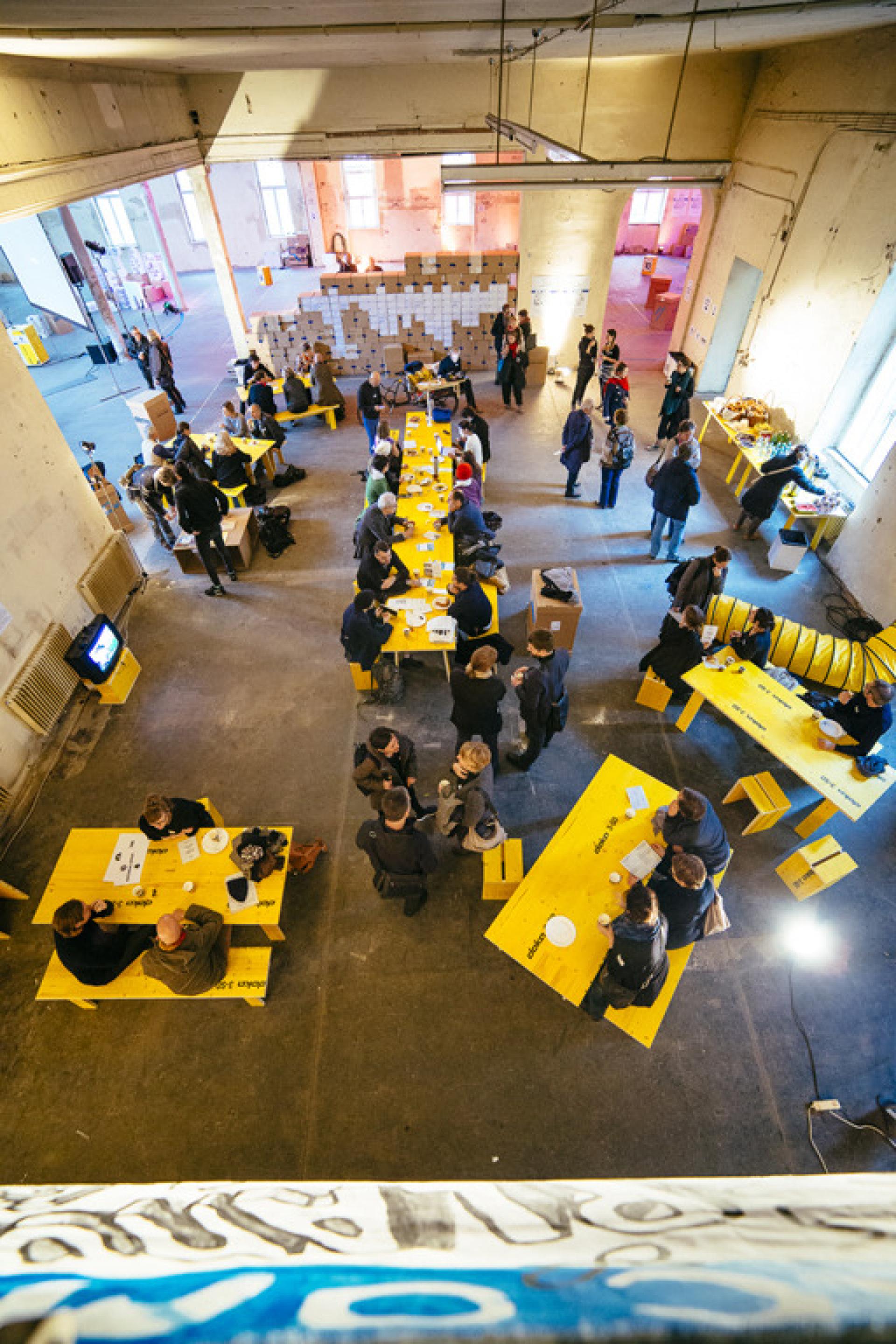
With lectures and discussions, workshops and case studies, artistic interventions, films and by exploring the city the festival brought in focus urban practices of appropriation and the challenges of the large scale in the light of the growing city, the housing crisis and the stricter refugee situation. In Vienna I talked to Elke Rauth, the organizer of the festival.
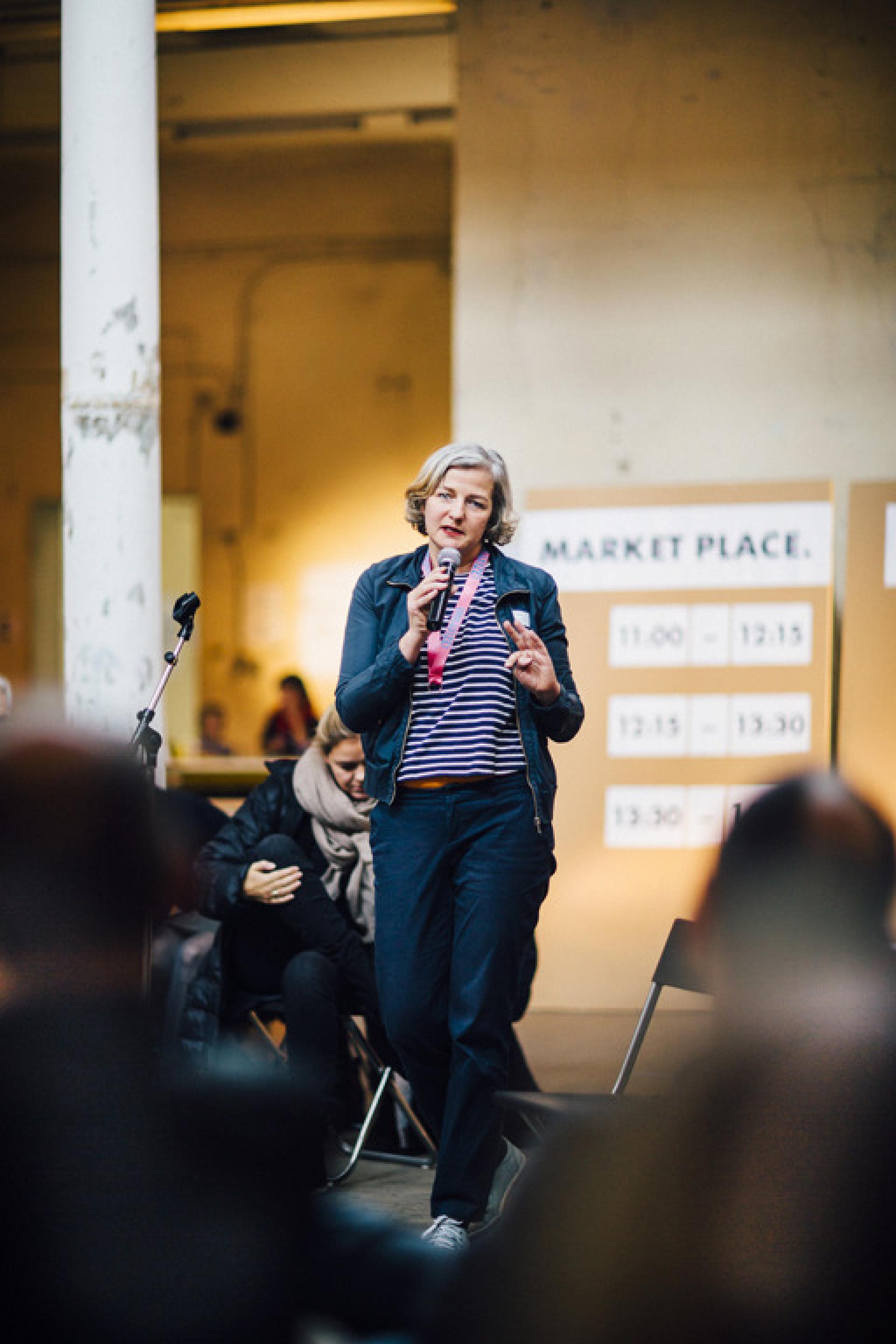
Bostjan Bugarič: Education of the audience, which you are doing with derive and the urbanize! Festival, is very important; can you explain the ways and methods of the selection criteria of the participants for the festival?
Elke Rauth: The idea behind urbanize! Festival is to create a platform for people who are already active in the fields of urbanism. In our editorial work we found out that a lot of people from different disciplines are very often working on very similar topics. But often they just stay in the containers of their disciplines. Interdisciplinary work is buzzing around for 15 or 20 years already, but in practice and real life not many project really do it. Christoph Laimer, the chief editor of dérive, for instance puts a lot of effort into getting authors to use a language that is understandable also for other disciplines. If we want to work together we have to try to sort of grade down from scientific speak and use a language that really brings contents to somebody who is probably not from the same discipline. So the idea of the festival is to open up a space, where urban researchers, planners, artists and activists can meet, exchange and discuss - and sometimes we see new projects emerging out of networks and connections that have been made during urbanize!
BB: Which audiences are targeted with the festival?
ER: For the urbanize! festival we thought to be great to create a platform for critical urban researchers, artists working in this field and activists. In some cases critical urban research and activism is something that comes together so it’s very often a double position as well. We are trying to invite guests to the festival from different disciplines concerning the research part, artists from different fields and activists with their great knowledge from their day to day fighting for better urban spaces, cities and urban development. By this a great combination of scientific knowledge, urban practices and artistic strategies and tools for the appropriation of urban space comes together which can be fruitful for all sides. That is one aim of the festival. The other aim is to find different formats for the audience of the festival, for the people who are interested in urban topics. Over the years we found out that there are some formats that are very easy to grasp for people like film for instance. Film is a brilliant media to talk about what is going on in the cities. No wonder there is a rise of documentaries that are dealing with the housing question, the city question and public spaces. That’s not an incident; we are living in a completely visual culture so we have to find visual expressions to discuss about topics as well. Film is really great. You can reach out to different audiences when you show movies.
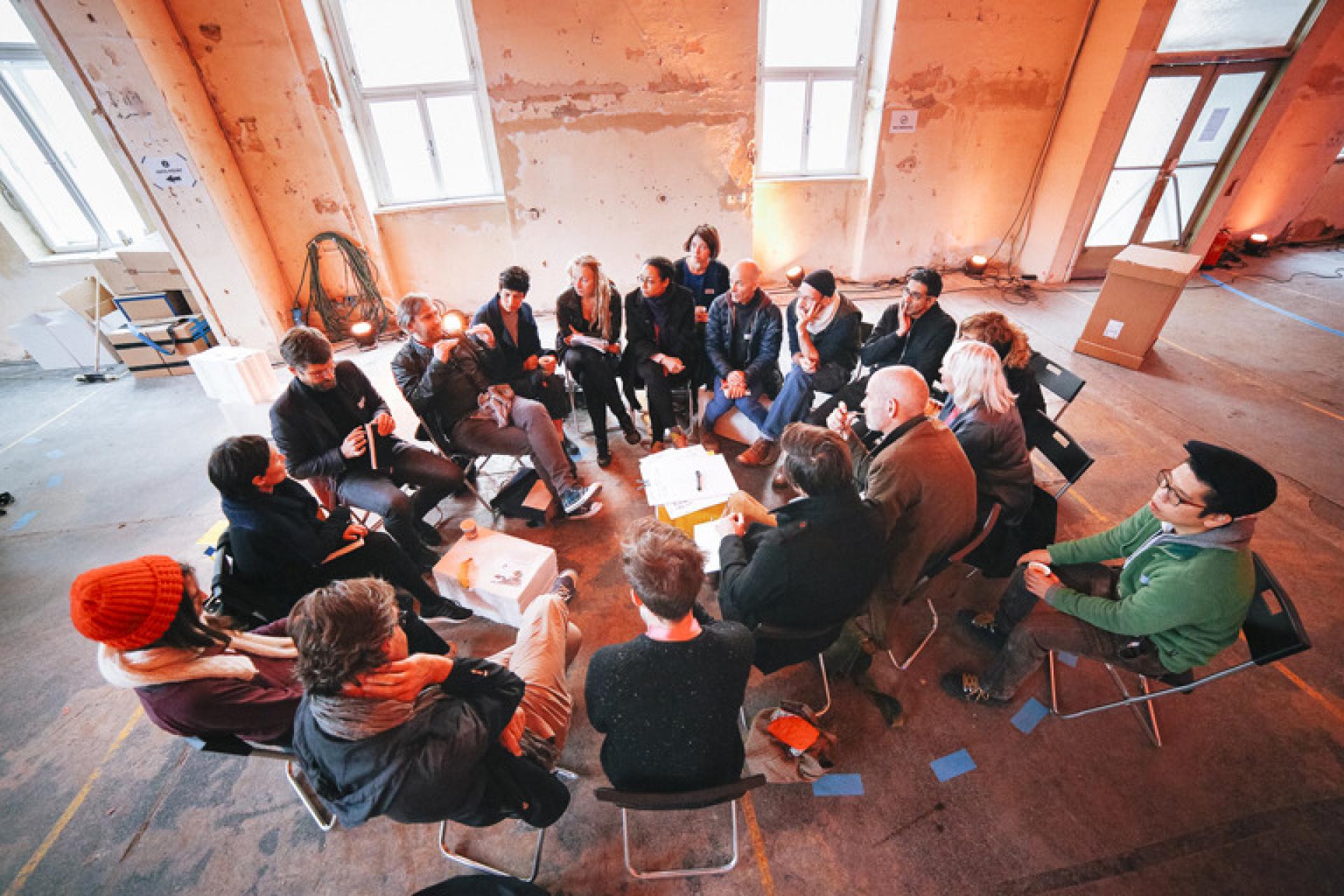
BB: What wants the festival bring out? To whom?
ER: We have discussions and workshops for people who really want to get active. We try to foster if somebody has an idea and doesn’t know how to go about it; we invite people with a lot of knowledge to hand it on in workshops. We have artistic formats to create unlikely situations that stimulate thinking and looking at things from a different point of view. There are changes from festival to festival, sometimes we use literature, sometimes music; we try to be very open about the formats to sort of reach different sorts of people because it is really important that as much people as possible are able to join the discussion about what is going on in the cities.
BB: Conference had specific format this year – open space format – explain more about this?
ER: What is very interesting about this open space format it really sets free all the knowledge and inspiration of the participants. It’s just a tool to sort of hand over the responsibility of what is happening to the people who are attending the conference. It really is an active format, you can do whatever you want and spend your time discussing topics and ideas that really matter to yourself. This might be very valuable for yourself but also for the state of discussion as such. If you decide you want to talk with people about a very concrete case or problem on a project you are already working on, you can do it as well. There are a lot of people who are probably interested in the questions you have, you can exchange and share and just go further. It is always a sort of a challenge and always a real surprise: Just hand over four very basic organizing principles [1] and one rule and you create an atmosphere where everybody is responsible for their own action. It is marvelous to see what happens when a great bunch of people who are active already, who are experts in their field, who have a lot of experience and knowledge come together. I think this worked very well. In general it was great to see how with the Open Space Format the theory that people are capable of themselves, of their actions, desires, of whom they want to meet, whom they want to share their knowledge with, whom they want to work with, really becomes reality. You just have to create the space for it.
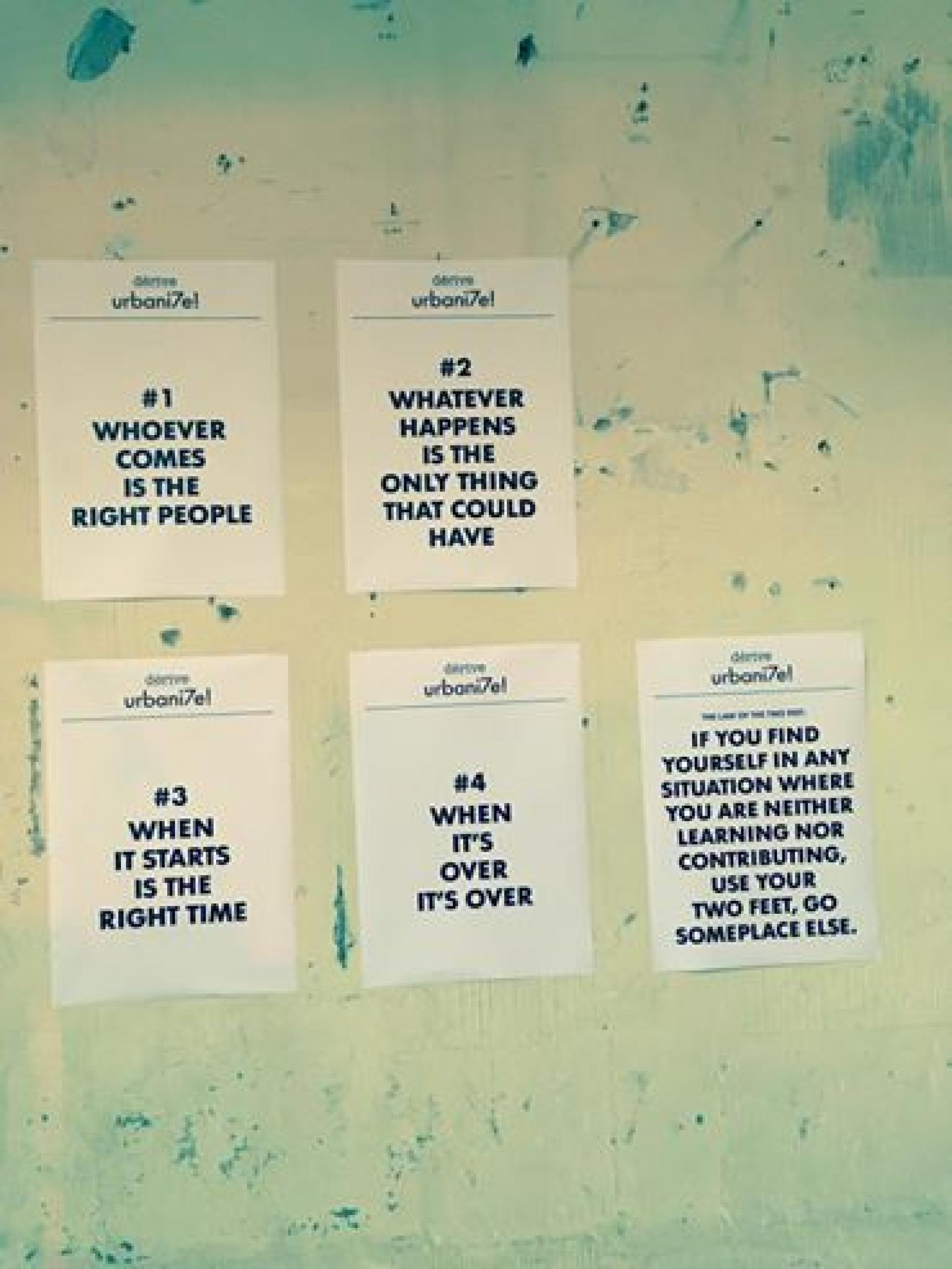
Four principles
BB: How festival combines alternative strategies and activism with established models of city organization?
ER: In the case of this year’s festival we tried hard to invite people from the administration, and also politicians. There weren’t many people from this side there and I am not quite sure why. One thing might be the schedule they have; administration and politics is filled with meeting. It seems hard for them to step out of this day-to-day business and it is always pressure, that’s one side. Another side might be that there seems to be a lot of fear to connect with people in an unusual environment. On one side there is this official strategy of participation and asking people and trying to get them into processes of development, but on the other hand there is a strong need for being in control. The understanding of the role politics and administration actually have in the whole set up still seems to be very much based on “we control it, we set the task, we do it”. I have the impression that is very hard to transform that way of thinking. In my opinion the task of urban politics would be to set the general goal or frame and mediate the collective process, instead of wanting to control it completely from the beginning to the end. So if the task e.g. is building up a more resilient neighborhood, this means that we have to think about ecological questions, social questions and so on. If you speak out an invitation to think about it together a lot of local knowledge can unfold. But this doesn’t actually happen. In the movie about the IHME ZENTRUM in Hannover from Constantin Alexander he also experienced as an activist that the whole discussion on the political and administrative side is driven very much by fear: fear of being responsible for wrong decisions, fear of loosing control, fear of loosing political power, fear of somebody couldn’t like it. But what we urgently need are innovative approaches to the challenges cities are in at the moment. And we need political actors that create space for brilliant ideas to develop, because a lot of this innovation is actually happening outside of institutions and official planning departments. We will keep on working on that, trying to create platforms where exchange becomes possible and fruitful for both sides. A lot of things have to change and it is not possible for activists to change the system on their own or e.g. to build the vast amount of flats needed to keep housing prices in an affordable balance. The city has to provide it; they are obliged to do it. But the way in which they do it should be connected to the citizens and there is a lot to be learned from best practice models from grassroots initiatives. But I am not sure if politics see this the same way as well.
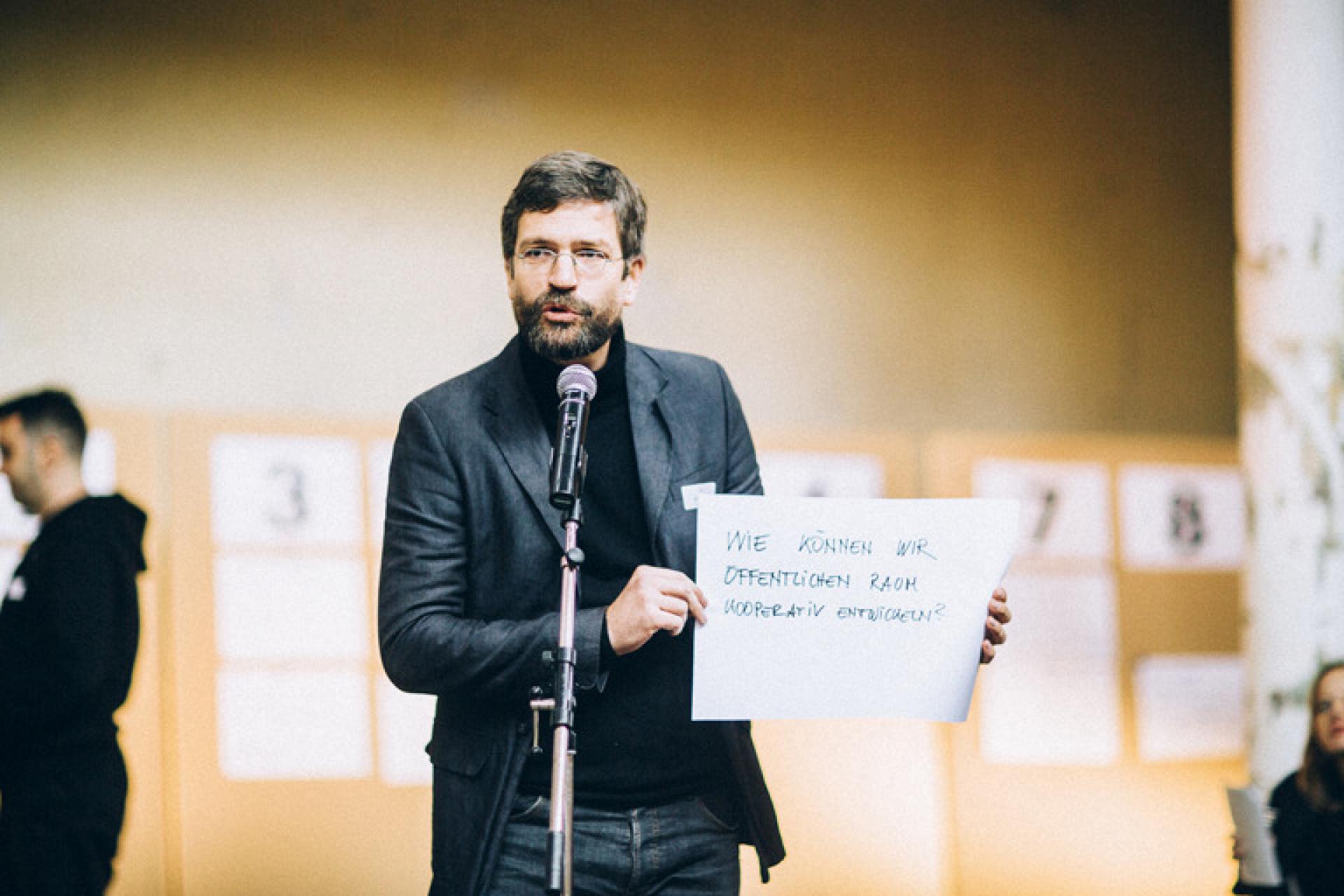
BB: Why city of Hamburg?
ER: This year the festival was done for the very first time outside the city of Vienna. For ten days we tested the ground in Hamburg. We are not interested in “franchising” the urbanize! Festival. It has to make sense for the city we are doing it in, for the organizations and people that are there and also for us. Hamburg came about very easily because there is very well established connection to the Right to the City network since 2011 when they did a big congress in Hamburg which inspired a lot of thinking in different cities, also in Vienna. From there we know a lot of people and everybody knows that things are very often based on personal connections, you know people and trust each other and want to work together. We had great co-curators in Hamburg with the team from the Planbude - Christoph Schäfer, Margit Czenki and Renee Tribble - who did incredible work on the grounds of the “Esso Häuser” in St. Pauli and establish international best practice in how to develop a big real estate area with, for and out of the neighborhood. Hamburg has a very neoliberal urban development going on for decades and at the same time has a very lively and creative culture of urban resistance and fighting for spaces in the city. Vienna on the other hand is a very paternalistic city, incredibly well administrated with a high living quality due to a long tradition in social housing but it’s not a city where people take things in their own hands. So we thought we could learn from each other quite a lot.
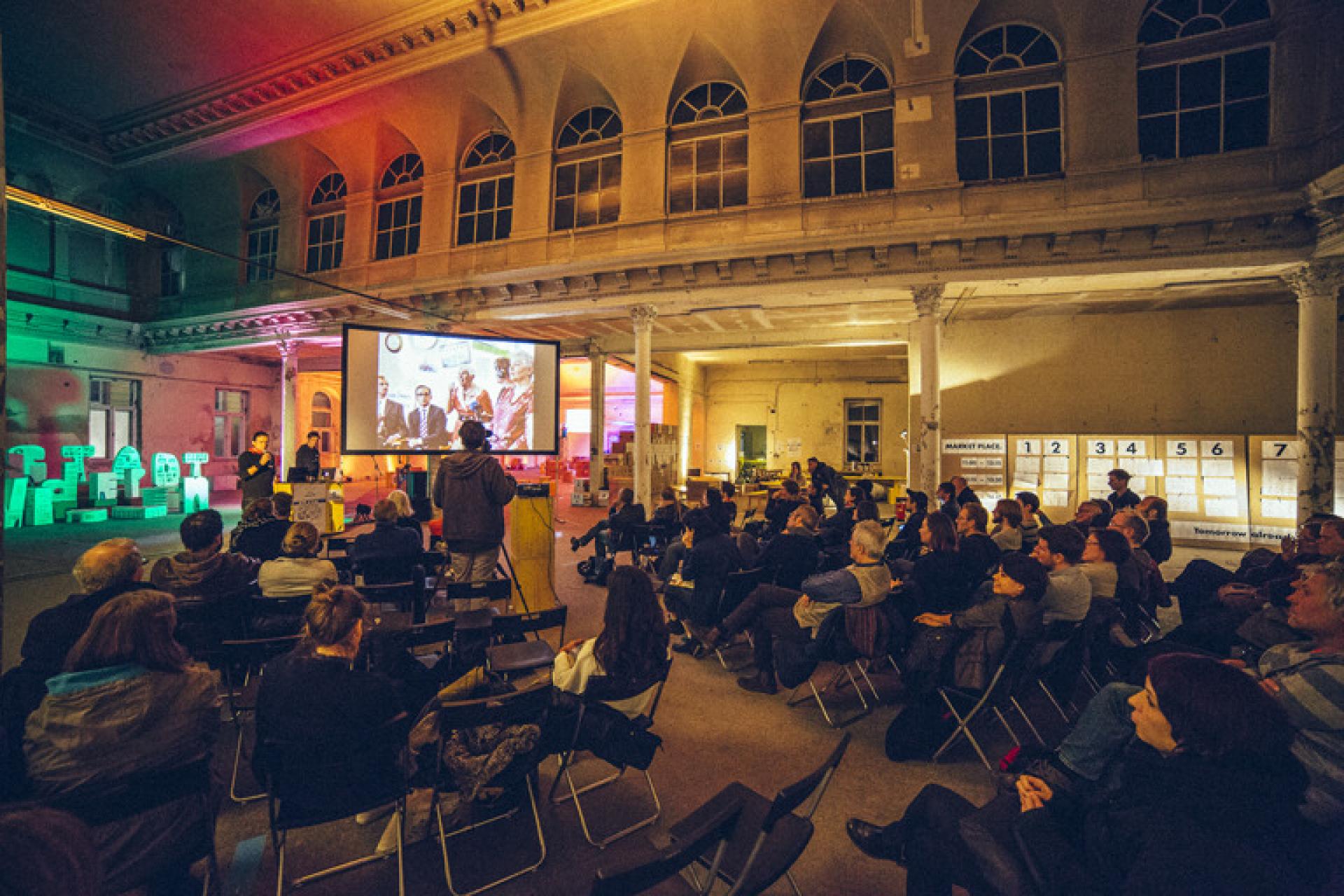
BB: You pointed out that “On the agenda is nothing less than the reinvention of the city by many”. Did you succeed?
ER: With our activities we just feel as one little stone of the very big picture done by the many. The city of many has to be invented by the many. We were just one part of this many.